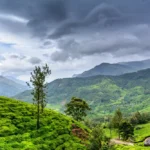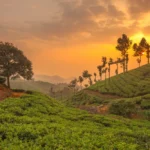Tanzania is more than just epic safaris and majestic landscapes—it’s a land of rich heritage, living traditions, and deep-rooted community values. Home to over 120 distinct tribes, Tanzania offers an extraordinary cultural experience where every region tells a different story.
From the iconic Maasai warriors of the savannah to the ancient Swahili traditions of the coastal communities, understanding Tanzania’s cultural heartbeat will transform your trip from a vacation into a journey of connection. Here’s your essential guide to Tanzania’s tribes, customs, and etiquette.
The Diverse Tribes of Tanzania
Tanzania’s population is a beautiful mosaic of ethnic identities. Each tribe has its own language, rituals, and way of life. Here are a few of the most prominent:
- Maasai: Easily recognizable in their red shukas and elaborate beadwork, the semi-nomadic Maasai are known for their warrior traditions and the iconic adumu (jumping dance).
- Chaga: Residing on the fertile slopes of Mount Kilimanjaro, the Chaga are skilled agriculturalists, cultivating coffee and bananas using traditional irrigation systems.
- Hadza: Among the last remaining hunter-gatherer tribes in Africa, the Hadza live near Lake Eyasi, preserving a lifestyle that dates back thousands of years.
- Sukuma: Tanzania’s largest ethnic group, the Sukuma are primarily farmers and cattle herders, known for their traditional music and healing practices.
- Zaramo & Swahili: Along the coast, these groups are heavily influenced by Arab, Persian, and Indian cultures, giving rise to the Swahili identity—a rich blend of language, music, architecture, and cuisine.
Understanding these communities offers a window into Tanzania’s incredible cultural diversity.
Traditional Customs and Celebrations
Tanzanian traditions are deeply communal, spiritual, and celebratory. Some cultural highlights include:
- Maasai Rites of Passage: Key ceremonies like Enkang oo-nkiri (circumcision) and Eunoto (warrior graduation) are crucial in marking life stages.
- Ngoma Dance: Found across many tribes, Ngoma blends drumming, dancing, and storytelling into a vibrant celebration of life.
- Mwaka Kogwa: Celebrated in Zanzibar, this Shirazi New Year festival features mock battles, poetry, and music—symbolizing renewal and reconciliation.
- Swahili Weddings: Known for their elegance and energy, these multi-day celebrations involve traditional garments, music, and dance—a spectacle of community and color.
If you’re lucky enough to attend a local festival, observe respectfully, ask before taking photos, and immerse yourself in the moment.
Essential Etiquette Tips for Travelers
Being culturally aware can transform your interactions and foster mutual respect. Here are some key etiquette tips for visiting Tanzania:
- Greetings Matter: A warm handshake—often using the right hand or both hands—is standard. Ask about family and well-being; it’s a common courtesy.
- Dress Modestly: Especially in rural areas and Muslim-majority coastal regions, dress that covers shoulders and knees is appreciated.
- Photography Etiquette: Always ask before taking photos of people, especially in traditional or religious settings.
- Hospitality: Tanzanians are gracious hosts. If offered tea, food, or gifts, accept with appreciation.
- Gift-Giving: When visiting a local home, small items like sugar, tea, notebooks, or soap are thoughtful and well-received.
- Footwear: Remove your shoes before entering homes or places of worship.
Practicing local etiquette will earn you smiles, respect, and unforgettable conversations.
Language and Communication
Swahili (Kiswahili) is the national language, spoken widely across Tanzania alongside English. Learning a few basic words goes a long way:
- Jambo – Hello
- Asante – Thank you
- Karibu – Welcome
- Pole Pole – Slowly (a local philosophy of taking life at a relaxed pace)
Using Swahili greetings shows goodwill and often leads to deeper, more genuine exchanges.
Final Thoughts: Culture Beyond the Safari
Tanzania’s wildlife and landscapes may draw you in—but it’s the people, traditions, and spirit of community that will truly capture your heart. Whether you’re trekking Kilimanjaro, exploring the Serengeti, or wandering through Stone Town’s historic alleys, take time to understand the culture that surrounds you.
This Tanzania culture guide is your invitation to travel with intention, curiosity, and respect. Because the deeper you connect with a place, the more it becomes a part of your story.






